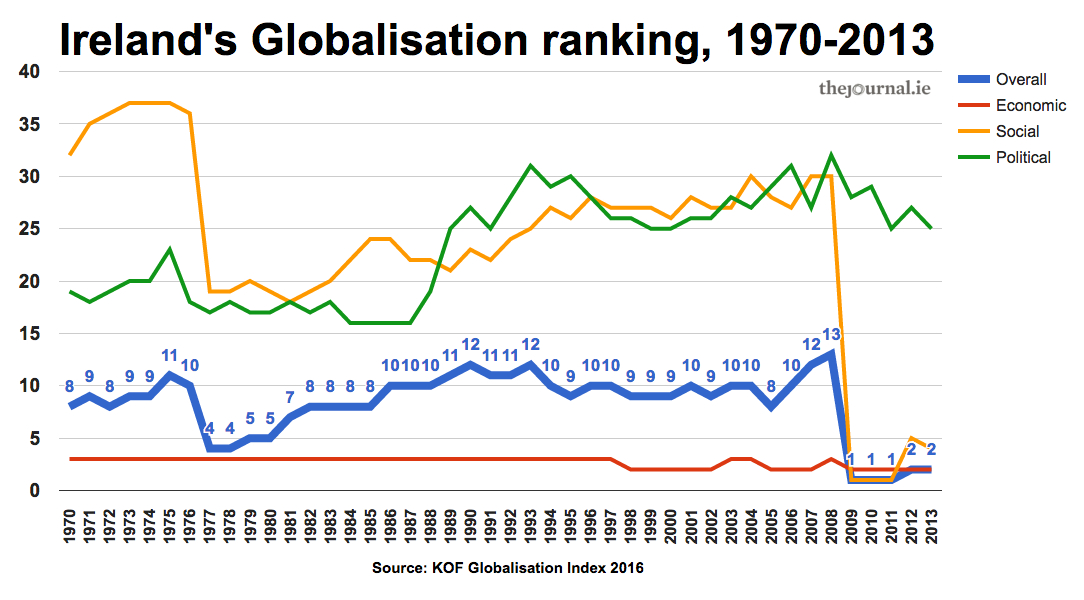Thanks to the integration of production across and within borders, consumers have come to expect infinite variety, instantly available. News Corp is a global, diversified media and information services company focused on creating and distributing authoritative and engaging content and other products and services. International bodies including the United Nations, European Union and World Trade Organization are key multinational organizations designed to facilitate increasing political globalization. This includes growing free trade and multilateral agreements on investment. Many believe that globalization helps out poorer nations by bringing them business.
- The World Bank is an international organization dedicated to providing financing, advice, and research to developing nations to aid economic advancement.
- While feminist philosophers agree that globalization has concentrated power in the hands of wealthy nations and corporations, further marginalizing women and the global poor, some believe the conditions of globalization also enable new forms of democratic accountability.
- For example, the 2008 financial crisis had a severe impact on Portugal, Ireland, Greece, and Spain.
- For example, a large multi-national can employ one set of financial accountants for all its separate businesses.
- Discover here the implications and arguments for and against globalization.
- The most egregious example of a special-interest provision is the W.T.O.’s rules on intellectual property.
But Globalization has also generated significant international opposition over concerns that it has increased inequality and environmental degradation. There is a need to study the impact of globalization on developing countries from the viewpoint of inward foreign direct investment. Attention should also be focused on the role which some developing countries, particularly from parts of Asia and Latin America, are playing as initiators of globalization through their own MNCs.

Globalization must mutate to suit the national interest more broadly defined. We need better, evidence-based, and globalisation problems trusted public decision-making mechanisms for weighing short-term vs. long-term economic impacts and security benefits vs. economic costs. The worsening tensions and rhetoric on both sides are making it much harder for the two largest economies to cooperate even on the issues where such cooperation is in their own national interest instead choosing to engage in “strategic competition”. And the strains are increasingly compelling other countries to choose sides, re-dividing the world at a time when collective success depends more than ever on collective action.
“Comparative advantage, economic growth and free trade.” Accessed Feb. 28, 2020. One of the potential benefits of globalization is to provide opportunities for reducing macroeconomic volatility on output and consumption via diversification of risk. Globalization also contributes to a less diverse global culture, with many countries’ unique cultural traditions increasingly influenced by capitalist Western countries.

It necessitates them to abide by standards of global welfare such as human rights. The only scenario where the globalization is not termed bad by the critics is in the development of third world countries. In today’s time, it is bringing a considerable lot of aspiring entrepreneurs on board.
As transport costs become less important, Mexico is increasingly competing with China and Bangladesh — where labor goes for as little as 9 cents an hour. This is one reason that real wages for the lowest-paid workers in Mexico dropped by 50 percent from 1985 to 2000. Chile began to grow, but inequality soared — the other problem with Pinochet’s globalization was that it left out the poor. While the democratic governments that succeeded Pinochet have not yet been able to reduce inequality, at least it is no longer increasing, and they have been able to use the fruits of Chile’s growth to help the poor.
These various approaches include those developed by postcolonial feminists, transnational feminists, and feminists who endorse an ethics of care. In this section, we identify four key features shared by these various feminist approaches to globalization and outline some of the distinctive characteristics of each theoretical orientation. Neoliberalism favors sharp reductions in public expenditures for social services, such as housing, health care, education, and disability and unemployment insurance, as a crucial means of reducing the role of government and making private businesses more efficient.
